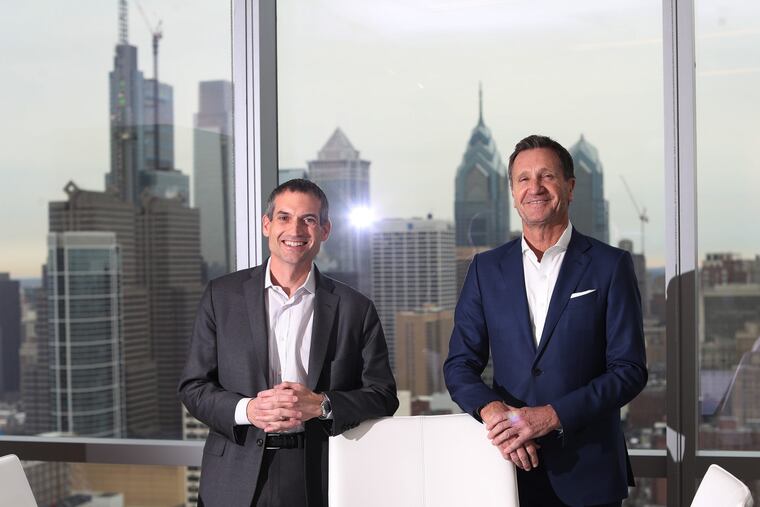Philly-based FMC files split plan; new Livent lithium firm readies IPO
Pierre Brondeau "says I was lucky, I say I was smart," said the head of FMCs lithium business, soon to be a public company

FMC Corp.'s planned split into separate pesticide and lithium companies moved a step closer Monday when the Philadelphia company detailed its proposal to offer public investors shares a minority stake in its new lithium company, Livent.
FMC shares closed Monday at $86.36, up 1 percent for the day. The stock topped $98 in January.
Most of FMC's yearly sales of about $3 billion a year are in its farm pesticide units, which were bulked up last year after a business swap with DowDuPont Co.
But FMC chief executive Pierre Brondeau has said that Livent could be worth roughly as much as the rest of the company, given lithium's large potential for growth as a key element in electric-car and smartphone batteries. The unit had sales of $347 million last year, up from $264 million in 2016.
Livent's CEO will be Paul Graves, now FMC's chief financial officer. His chief operating officer will be Thomas Schneberger, an FMC veteran who has been a leader in its lithium unit since 2014. Gilberto Antoniazzi will be chief financial officer.
Lithium is also used to treat manic depression, and has grease, plastics, and aerospace uses. It is mined in rugged deserts in China, Argentina, and Chile, and sent for intermediate and final processing to sites closer to factory centers. Quebec, Bolivia, and parts of the United States are also potential new sources.
The company's lithium business has worked for 20 years with a succession of staten and national governments in Argentina to bring that nation's lithium to market, from its lithium brine extraction site at Salar del Hombre Muerto (Dead Man's Salts) in a desert area approaching the Andes Mountains. The company has lithium production sites in the U.S., United Kingdom, China and India. More than half its lithium sales are to companies in Asia.
Livent employs 750. Many are unionized mine workers in Argentina. The company said it "has not established" the size of its proved lithium reserves in that country, its major source of raw materials.
Despite rising demand, prices and expectations for lithium makers have varied, since one or more new producers could have a big effect on the market, FMC warned. The company has made expensive bets on new production that should come on line between 2019 and 2025.
FMC, unlike some of its lithium rivals, processes basic lithium ores, and refines it into intermediate products and high-purity metals.
The company, once known as Food Machine Corp., has a history of buying new businesses and splitting into separate companies. FMC's largest business — pesticides — was enhanced by a deal in which the firm got a group of DuPont pesticides, and a research laboratory and farm in Newark, Del., in exchange for FMC's former food-additives business, to help Dow and DuPont get their merger plan past antitrust enforcers at the European Union.
Without lithium, FMC will be what investors call a "pure play" pesticide company, one of five multinational pesticide giants competing with DowDuPont's planned CorTeva spin-off along with rival giants in Europe and China. Unlike Bayer-Monsanto or DowDuPont, FMC has avoided pairing its pest poisons with genetically-modified organisms (GMOs).
FMC has split its lithium-manufacturing operations among the U.S., China, and other countries. Because the processes are divided among distant sites, few people know details of the complete Livent production processes; the company hasn't patented a number of its production steps, preferring to keep its work secret.
Late last year, FMC boasted they expected to bring the new company to market in time to meet a big increase in global demand. Brondeau "says I was lucky. I say I was smart," said Tom Schneberger, global business director for FMC Lithium at that time.
Brondeau has said both companies plan to keep their headquarters at the 49-story FMC building that towers over the Schuylkill, I-76 and 30th Street Station at the edge of the University of Pennsylvania and Drexel campuses in Philadelphia's University City.